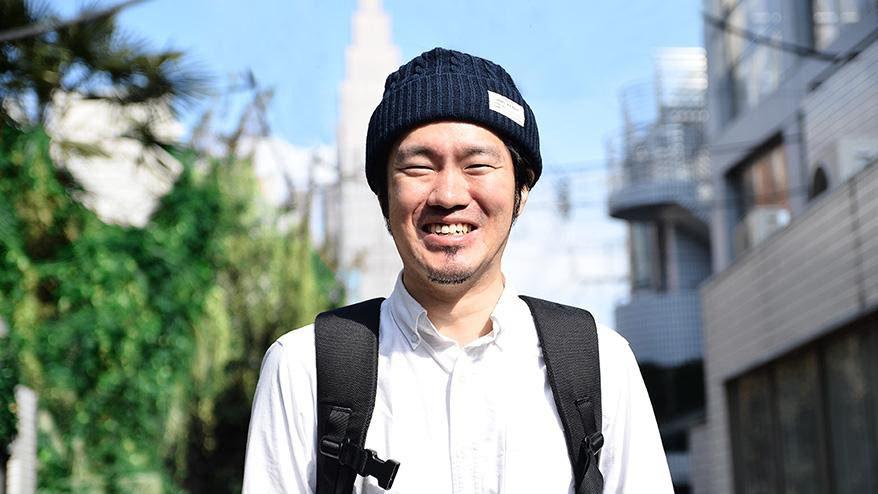モノサスがフロントエンドに特化してきて10年。
これまで、Web制作の最終工程だったフロントエンド(コーダー)の役割が、今大きく変わろうとしています。
ユーザーが使いやすいかどうか(UI)どんな体験をして満足を覚えるのか(UX)、そういったことがWebサービスの生命線になり、「見え方」や「動き」を司るフロントエンドの知見が、仕様を決定する上で欠かせなくなってきました。
制作の最終工程から、仕様を決める中心的な役割へ。
役割が変われば、働き方も変わっていきます。これまでのように、離れた場所でメールや打合せを何度も繰り返すよりも、クライアント先で「一緒に作っていく」方が、よりダイレクトに関わっていけるんじゃないか。
そこで今回、クライアント常駐型のフロントエンドエンジニア(コーダー)を、新たに募集します。
ユーザーの立場になれるのが、フロントエンドの強み
これまでの、あらかじめ決められた仕様書に沿ってコーダーが実装する手法では、ユーザビリティの高いものを作るのが難しくなりつつある。その背景には、Webが平面的なもの(情報を見る)から、立体的なもの(体感する)へ変わってきたことがあります。
UI、UXなどの領域が広がるにつれて、主流だったウォーターフォール型(要件定義→設計→実装、と順番に工程を進める手法)が適さない案件が増えてきた。
そう語るのは、コーディングファクトリー部・部長の児嶋いずみです。
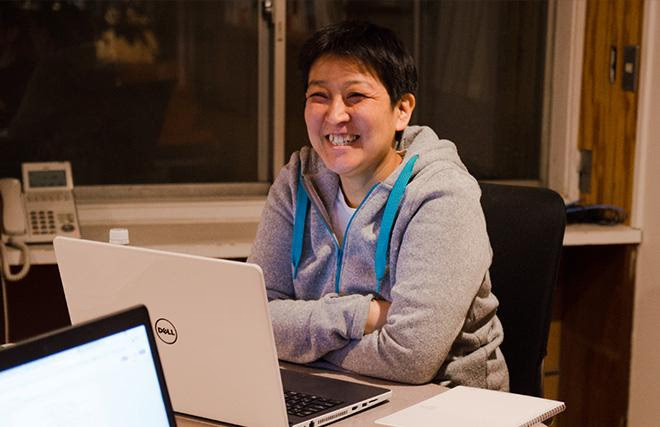
新たなエンジニアチームを率いるリーダーであり、「三度の飯よりコーディングが好き」な児嶋。この変化に対して、ユーザーの立場に立てるフロントエンドの強みを活かす時が来たと感じているそう。
児嶋
UI、UXを想定した指示が山のように書き込まれた仕様書があっても、いざ実装してみたら「なんか使いにくい...」というケースも多くて。だったら、あらかじめ仕様を決め込まずに、実際に作りながら確認する方がいいですよね。そのときに、ユーザー側の立場になって考えて、実際にトライ&エラーが出来るのって、フロントエンドのエンジニアだけなんです。
フロントエンドを司るコーダーが、デザイナーやバックエンドと連携して、モックアップを作りながら、動きや見え方を検証をしていく。少しづつ固めながら、最終形が出来あがっていくイメージです。
児嶋
いわゆる「アジャイル型」と言われる開発方法ですが、これまで分業していた工程(システム設計、デザイン、コーディング等)の技術者が皆で集まって、クライアントと一緒になってワッと作っていく。走りながら作るような感じだけど、前工程が終わるのを待つ必要もない。このスピード感を実現するには、クライアント先に一定期間常駐して、顔を合わせながらやるのが一番効率がいいと思うんです。
これまでの「最後に実装する人」だった立場から、トライ&エラーしながら「一緒に作りあげていく人」にスイッチしていく。確かにこれは大きな変化です。
仕様を決めるプロセスに関わっていきたい
今後のWeb制作のスタイルは、従来のウォーターフォール型から、アジャイル型にシフトしていくということなのでしょうか。
児嶋
いえ、従来のやり方も残しつつ、そうじゃない関わり方にもチャレンジできればと。最後に一気に実装する制作工程はこれからも変わらず必要なんですが、仕様を決めるというプロセスにも関わっていきたいんです。
クライアントには「こうしたい」があって、私たちには実現する技術がある。だったら、一緒にやった方が早いし、喜ばれるし、新しい技術もどんどん使ってイケてるサイトが作れるし(笑)。
確かに、技術者として大きなやりがいですが、相手のニーズを満たすにはコミュニケーションも重要。単に技術力があればいいという話でもないようですが。
児嶋
もちろん、技術に加えてコミュニケーション力は必要です。でも、今制作をやっていて、ある種のもどかしさを覚えている人なら大丈夫だと思います。もっと「こうしましょう」という部分に関わっていきたい人や、いろんな種類の案件をやってみたい人。今の場所から飛び出して、作り手としてステップアップしたいという気持ちが大事だと思ってます。
いろんなクライアント先に常駐して新しい案件に取り組みながら、技術者として知見やスキルを磨きたい。そんな人にとって、この働き方は大きな財産になる。そう児嶋は言います。
相談できる仲間がいるという安心感
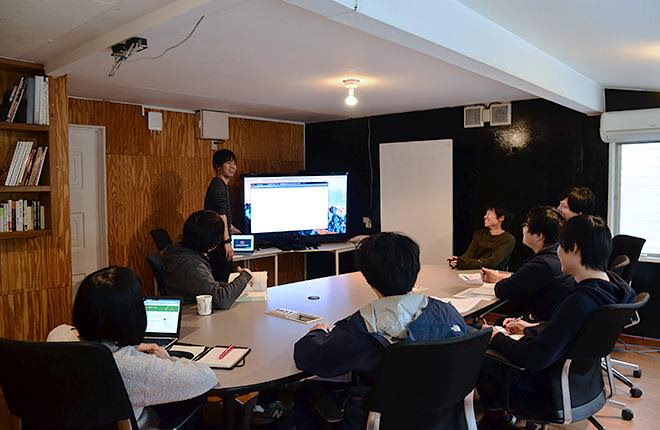
社外に常駐して次々と案件を回していく。そう聞くと、フリーランスに近いようなイメージを持ちますが、社内との関わりはどうなるんでしょうか。
児嶋
ずっと同じクライアント先に常駐することは想定してなくて、短ければ数ヶ月で帰ってきて、社内にいて、また飛び立っていく。あくまでモノサスがホームベースにあるイメージです。
かつて自身もフリーランスだった経験から、大きく違うのは「安心感」だと力説します。
児嶋
フリーの頃はやりがいもあるし楽しかったけど、全部自分でやらなきゃいけないのが本当にしんどかった。どんだけ考えて効率よくがんばっても、頭は一つしかないし、手は二つしかない。そんなときモノサスと仕事で関わって、コーダーの皆のチーム力を目の当たりにして。困ったときに助け合える存在に衝撃を受けてモノサスに入ったので(笑)そこは安心してもらっていいと思います。
迷ったら相談に乗る、工数調整に行き詰まったらサポートする、時には代々木メンバーへモックアップの実装を依頼することも。月次のコーダーミーティングへの参加やナレッジ共有会などを行いながら、支え合う体制を作っていく予定です。
児嶋
代々木のメンバーがいるからこそ成り立つ働き方。お互いがあることで、より強い制作集団になっていくというか。社外にいるけど決して一人じゃない、そこは強く言いたいですね。
実際にやってみた手応えを体験してほしい
実際に常駐型プロジェクトを経験して、今回教育を担当するのが伊藤洋介です。
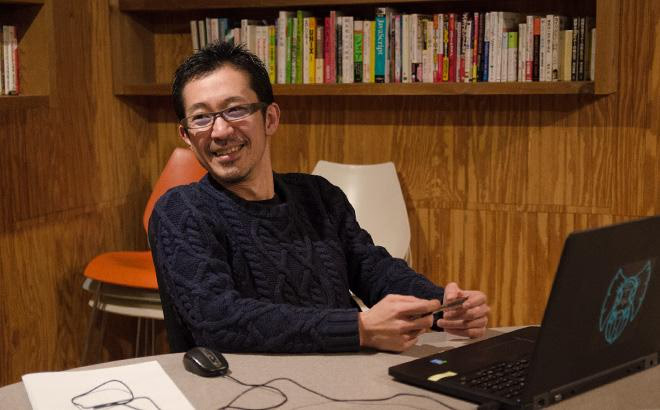
児嶋の前任として、コーディングファクトリーの技術を飛躍的に向上させた功労者にして、モノサスのトップエンジニア。その教育スキルを活かして「神山ものさす塾」では、第一期・第二期ともにコーディング講座を担当。社内に多数の "伊藤チルドレン" を持つ、教育のスペシャリストです。
ひと足早く、クライアント先に複数ベンダーと常駐してみて「チーム感が半端ない」という伊藤。一方で、主体的に動くことの大切さも実感しているようです。
伊藤
相手のホームに飛び込んでいくので、受け入れスタンスが全然違うんですよ。本当に一緒に作ってるなぁという感じ。「これどうする?」「そうっすね」みたいな(笑)。コミュニケーションロスが少ないんです。ミーティングではガッと集中して、それ以外は各々の領域を黙々とやる。その切替えもすごく心地いいですね。
その分、自分で主体的に動かないと何も始まらない。その分野のプロとして呼ばれてるわけだから、指示を待ってちゃダメですね。
自分から情報を取りにいかないと、アップデートが漏れてしまうこともあるとか。主体的に動くことが求められるプロの現場。厳しい反面、自分の関わり方次第でいくらでも面白くできる、そんな楽しさにもつながっているようです。
フロントエンドが中心になってチームを動かす
実際、制作現場においてフロントエンドの立ち位置はどう変化しているのか。従来はバックエンドからフロントエンドに仕様オーダーが来ていたシステムがらみの案件でも、逆になるパターンが増えていると言います。
伊藤
今の案件でも、バックエンドへのオーダーを出してるのは自分だし、デザインのミーティングにも呼ばれるし。フロントエンドが中心になって動かないと案件がスピーディに進まない状態になってます。
元々フロントエンドってデザインともバックエンドとも隣接してるから、どっちにも広げやすい。デザインがわかってサーバーのことも分かったら最強なんです(笑)。
技術と知見を活かして、クライアントのニーズに応えていく。エンジニアとして腕の見せどころですが、常に最適解を提供していくのは、なかなかハードルも高そうです。
伊藤
もちろん何でも出来るハイレベルな人も大歓迎ですが、そういうエンジニアになりたいかどうかが大事だと思ってます。フロントエンドで本気で生きていこうと思ってるか、みたいな。
技術はいくらでも伸びしろがあるんです。自分もそうやって出来る領域を広げてきたし。それよりもお客さんとちゃんと会話して、理解して、相手が本当に求めているものをキャッチできる、そういうスキルの方が大事かも。
コミュニケーションが好きだからエンジニアやってます、そんな人が来てくれたら嬉しいという伊藤。バックエンド出身でフロントエンドの経験が浅い方でも大丈夫なように、教育体制も整えています。
約一ヶ月、代々木でみっちり教えます
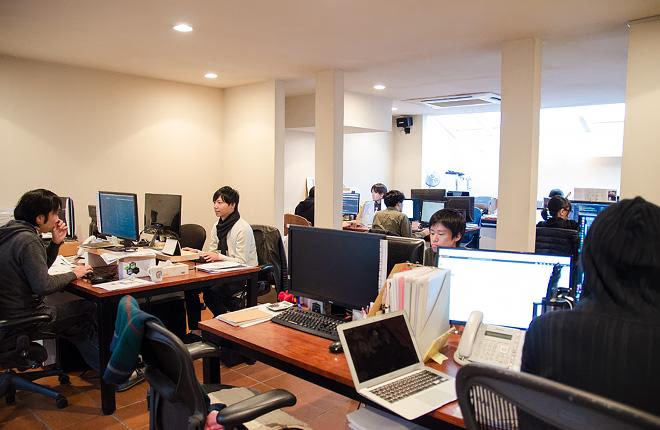
入社後の教育カリキュラムでは、ベースとなる HTML、CSS、JavaScript、PHP のスキルを必要レベルまでアップします。コーディングガイドラインに沿った講習をはじめ、アニメーションタイプとバックエンド連携タイプのJavaScript、WordPressでのPHP関数取扱、その他ツールなど。続いて、品質管理、進捗管理、予算管理などのディレクションの講座。最後に実践編として、常駐型の働き方についてロールプレイングも交えて学んでいきます。
伊藤
研修期間は約一ヶ月、場所は代々木のオフィスです。今回は4〜5人ほどの採用になると思うので、社内の皆がいるフロアの一角で行う予定です。この期間に、ホームベースになるモノサスの仲間とも交流を深めてもらいたいと思ってます。
ただ、これはあくまでも最低限のセットアップ。そこから現場でどんどん新しい知識を吸収しながら、スキルアップして欲しいですね。技術に終わりはないので。
スキルを磨いていくと、将来的にはテクニカル・ディレクターやプロジェクトマネージャーなど、より上流工程に関わっていくような働き方が求められる気がしますが。
伊藤
そういう道もあるだろうし、逆に超とがったエンジニアを目指したり、また別の道もあるかもしれない。そこに敢えてレールは敷かないけど、いろんな道を応援する土壌はあるので、どんどん切り拓いていってほしいですね。
働き方をいっしょに作っていける人を
最後に、代表の林に話を聞いてみました。
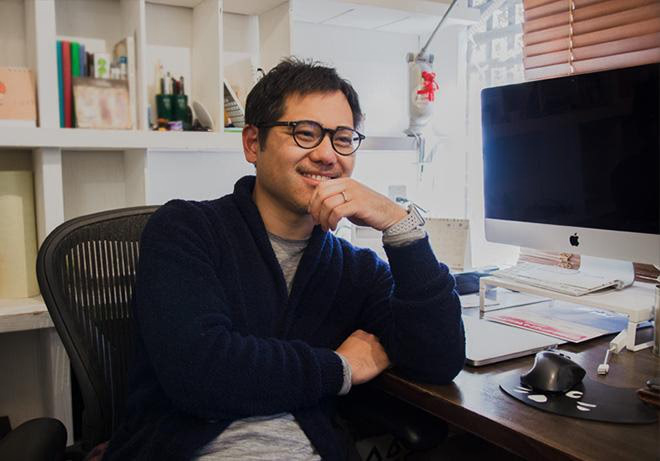
代々木、大阪、神山(徳島県)、タイ、それぞれの拠点が、成り立ちも働き方も違うモノサス。今回の採用についても、働き方の選択肢が増えるのは嬉しいと言います。
林
一通のメールから始まった大阪、職業訓練を担当した塾長と塾生がそのまま立ち上げた神山。異文化チームのタイはやたらと出戻りのスタッフが多いし、この春から副社長は山口県の周防大島に移住するという(笑)。
普通に考えると会社の方針が先にあるんだろうけど、うちの場合、個人の思いが出発点になることが多くて。そういう部分を大切にしたいというのは、会社を始めた当初から変わってません。
モノサスという社名も「自分のモノサシを持ってほしい」という思いから付けられたもの。他人から与えられたものだけに自分の人生を委ねるのはやめようよと。
林
今回の働き方って、良く言えばフリーランスと会社員の間のような感じ。これまでなかったので、やりづらい面もあるだろうし、大きな会社のようにすべてが整った状態でもない。もちろんビジネスとしてはちゃんと考えてるけど、自分で動かないと始まらない部分は多いと思います。
万人に当てはまる働き方じゃないけれど、余白のような部分を作っていく楽しみは、間違いなくある。与えられるだけじゃ満足できない、自分で考えて動きたいというエンジニアはきっといる筈だと。
林
だから、別に「モノサス大好き」とかじゃなくて全然いいです(笑)。
働き方の多様性を尊重できる人、トライ&エラーを面白がりつつ新しいカルチャーをつくってくれる人。そんな人に来てもらえるといいなと思ってます。
| 募集職種 | フロントエンドエンジニア(コーダー) |
| 雇用形態 | 契約社員 ※正社員登用制度あり |
| 勤務地 |
本社:東京都渋谷区代々木3-9-5 ※基本的には顧客先への常駐を想定しています。 |
| 給与 |
月給30万円~42万円 ※交通費支給あり(上限月30,000円) ※みなし残業手当45時間分/75,251円~105,352円含む/45時間分を超過した場合は追加で支給 |
| 勤務時間 |
フルフレックスタイム制 月間総労働時間168時間(別途みなし残業45時間) ※基本的には、常駐先の勤務時間にあわせる形となります。 |
| 待遇・福利厚生 |
・時間外勤務手当(45時間を超える分に関して支給) ・各種社会保険完備 ・賞与年1回(12月・業績連動型) ・研修制度有 ・ITS保険の契約保養所の利用可 ・月間MVP制度/年間MVP制度 ・社食(常備型【おとん・おかん】各100円) ・社員旅行(正社員積み立て) ・正社員登用制度 |
| 休日・休暇 |
・月4日以上(社員月平均休日日数:8.5日)※2017年1月実績 ・年末年始休暇、夏季休暇(正社員対象) ・有給休暇(入社6ヶ月経過後10日~最高20日) |
| 応募資格 |
■必須経験/資格等 ・SASS(CSS)、HTML5、JavaScriptを利用した開発経験 ・レスポンシブサイトの制作経験 ・Gitを利用した開発経験 ・タスクランナー(Grunt/Gulp)を利用した開発経験 ■上記に加え、以下のいずれかのスキルをお持ちの方 ・JavaScript/Ajaxを利用したバックエンド連携情報系UIの開発経験 ・SASSなどCSSプロセッサーへの理解と活用 ・BEM/SMACSS/OOCSS等、更新性とパフォーマンスに配慮したCSS設計開発 ・最新のJavaScriptフレームワークやライブラリ(React、Vue、underscore等)への理解と活用 ・タスクランナーやCIツール(Jenkins)の設定と活用 ※バックエンド経験者の方も歓迎します |
| 採用予定人数 | 5名 |
| 選考方法 |
まずは下記よりご応募・お問合せください。 その後、書類選考→1次面接→2次面接→採用となります。 ※書類選考結果は、次の選考ステップに進まれる方のみご連絡させていただきます。 ※取得した個人情報は、採用選考にのみ使用します。 ※選考プロセスは変更になる可能性があります。 ※不採用理由についての問い合わせにはお答えできませんのでご了承ください。 ※遠方の方はビデオ会議による面接も可能です。 |
